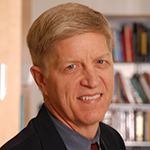CHICAGO—At the 2018 ACR/ARHP Annual Meeting in October, the ACR and the ARHP honored distinguished individuals who have made significant contributions to rheumatology research, education and patient care. This month, The Rheumatologist speaks with the ACR winners about their individual contributions to advancing rheumatology. You’ll also find the 2018 Masters list. In the next issue, we will profile the ARHP Award winners and the Distinguished Fellow Award recipients.
ACR Awards of distinction
Presidential Gold Medal
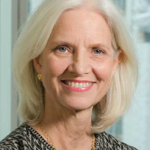 The Presidential Gold Medal recipient is Mary K. (Peggy) Crow, MD, MACR. She is physician in chief, chair of the Department of Medicine, senior scientist and director of the Autoimmunity and Inflammation Program and the Benjamin M. Rosen Chair in Immunology and Inflammation Research for the Hospital for Special Surgery (HSS) in New York. She is also the chief of the Division of Rheumatology and Joseph P. Routh Professor of Rheumatic Diseases in Medicine at Weill Cornell Medical College, New York.
The Presidential Gold Medal recipient is Mary K. (Peggy) Crow, MD, MACR. She is physician in chief, chair of the Department of Medicine, senior scientist and director of the Autoimmunity and Inflammation Program and the Benjamin M. Rosen Chair in Immunology and Inflammation Research for the Hospital for Special Surgery (HSS) in New York. She is also the chief of the Division of Rheumatology and Joseph P. Routh Professor of Rheumatic Diseases in Medicine at Weill Cornell Medical College, New York.
The highest award the ACR can bestow, the Presidential Gold Medal is awarded in recognition of outstanding achievements in rheumatology over an entire career.
“My experience in ACR leadership roles has taught me a lot about how to be a good leader,” says Dr. Crow. “I learned how to move a group of individuals forward, build consensus, achieve a goal by shaping the conversation and getting people all on the same page and in a productive way.”
Dr. Crow has served in many ACR leadership positions. From 2005–06, she served as its president. Previously, she chaired the Annual Meeting Planning Committee and was a member of the Committee on Education, Research and Education Foundation and Board of Directors.
Today, she co-chairs the Scientific Advisory Board of the Lupus Research Alliance, is a member of the Executive Committee of the Lupus Clinical Investigators Network and is past president of the Henry Kunkel Society, an organization of scientists dedicated to human studies of immune-mediated diseases.
Dr. Crow has dedicated her career to understanding and improving treatment of systemic autoimmune rheumatic diseases and the advancement of academic rheumatology. In 1978, she received her medical degree from Cornell University Medical College, Ithaca, N.Y. She trained in internal medicine and rheumatology at New York Hospital and HSS, and conducted postdoctoral research training in immunology at Rockefeller University, N.Y.
Her research has focused on characterizing mechanisms of immune system regulation and the immunopathogenesis of systemic rheumatologic disorders, particularly the prototypic systemic autoimmune disease, systemic lupus erythematosus (SLE). She was among the first to characterize the functional properties of human dendritic cells and has studied self-reactive T cells in healthy individuals and in those with SLE. She discovered the central pathogenic role of type I interferon in SLE and continues to investigate the endogenous triggers of autoimmune disease and the molecular pathways involved in autoimmunity and inflammation in those disorders.
In 2020, she plans to step down from her physician in chief position at HSS to focus more on research.
To those in attendance at the awards ceremony on Oct. 20 during the Annual Meeting, Dr. Crow commented on the impact rheumatologists can make on the illnesses that impact up to 10 times more women than men.
“I work really for the good of others almost more than for myself,” says Dr. Crow. “My plan is to go back to my research and make advances related to systemic autoimmune diseases and identify what the underlying triggers and mechanisms are for these diseases.”
Distinguished Service Award
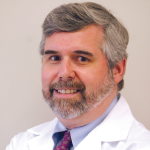 Given to an ACR member for outstanding and sustained service to the ACR, the 2018 Distinguished Service Award recipient is Jonathan Kay, MD, professor of medicine, the Timothy S. and Elaine L. Peterson Chair in Rheumatology, and director of clinical research for the Division of Rheumatology at the University of Massachusetts Medical School in Worcester.
Given to an ACR member for outstanding and sustained service to the ACR, the 2018 Distinguished Service Award recipient is Jonathan Kay, MD, professor of medicine, the Timothy S. and Elaine L. Peterson Chair in Rheumatology, and director of clinical research for the Division of Rheumatology at the University of Massachusetts Medical School in Worcester.
“I’m deeply honored and humbled to be the recipient of this award,” says Dr. Kay. “The organization has been a major part of my professional and personal life. It’s nice to be appreciated by the same organization I have valued for so many years.”
Since 1997, he has served in the following roles: as a member of the Board of Directors, RheumPAC and the Committee on Nominations and Appointments. He also chaired the Professional Meetings Committee, the Annual Meeting Planning Committee and the Committee on Education.
Because he represented the ACR abroad for many years, some members regard Dr. Kay as the ACR’s Thomas Jefferson. While informally acting as the ACR’s foreign ambassador, Dr. Kay was a member of the group that developed the 2010 ACR/EULAR Classification Criteria for Rheumatoid Arthritis, chaired the Rheumatology Working Group and was a member of the Internal Medicine and Musculoskeletal Topic Advisory Groups for the World Health Organization, which developed the Revision of the International Classification of Diseases (ICD) 11.
He is also considered a world expert on biosimilars. For years, he has focused on developing biosimilars to treat rheumatic diseases and participated in the PANLAR Consensus Meeting on Biosimilars.
Dr. Kay received his medical degree in 1983 from the University of California School of Medicine, San Francisco. He completed an internship and residency at the Hospital of the University of Pennsylvania, Philadelphia, and clinical and research fellowships in rheumatology and immunology at the Brigham and Women’s Hospital, Boston, and Harvard Medical School, Boston. In 2009, he joined the faculty of the University of Massachusetts Medical School, Worcester, and also has a clinical appointment at UMass Memorial Medical Center, Worcester.
Over the past three decades, Dr. Kay has focused his research on gadolinium-induced systemic fibrosis (formerly known as nephrogenic fibrosing dermopathy and nephrogenic systemic fibrosis), β2-microglobulin amyloidosis and other rheumatologic problems of patients with chronic kidney disease. He has participated in many clinical studies on rheumatoid arthritis, spondyloarthropathies and other forms of inflammatory arthritis. He also maintains a busy rheumatology practice.
“I have had the privilege of learning from my patients about some of the most personal aspects of their lives,” says Dr. Kay, who has also been awarded honorary membership in EULAR. “They’ve made me realize how fortunate I have been, and I have developed great respect for others.”
Distinguished Clinician Scholar Award
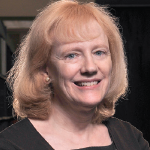 The Distinguished Clinician Scholar Award is awarded to a rheumatologist who has made outstanding contributions in clinical medicine, clinical scholarship, or education. This year’s recipient is an ACR Master, Marilynn G. Punaro, MD, MACR, professor of pediatrics, the Nadine and Tom Craddick Professorship in Medical Education, division chief and pediatric rheumatology master at Fashena College, University of Texas Southwestern Medical Center in Dallas. She is also the director of arthritis services at Texas Scottish Rite Hospital for Children in Dallas.
The Distinguished Clinician Scholar Award is awarded to a rheumatologist who has made outstanding contributions in clinical medicine, clinical scholarship, or education. This year’s recipient is an ACR Master, Marilynn G. Punaro, MD, MACR, professor of pediatrics, the Nadine and Tom Craddick Professorship in Medical Education, division chief and pediatric rheumatology master at Fashena College, University of Texas Southwestern Medical Center in Dallas. She is also the director of arthritis services at Texas Scottish Rite Hospital for Children in Dallas.
“The ACR exposed me to an astounding diversity of people and amazing collective knowledge and expertise that allowed me to elevate my own practice,” says Dr. Punaro. “It drove a lot of my career in terms of medical education in allowing me to participate at a national level in medical education initiatives.”
Dr. Punaro graduated from Tulane University Medical School, New Orleans, in 1977. Between 1980 and 1982, she completed her pediatric residency at Children’s Medical Center Dallas and a pediatric rheumatology fellowship at University of Texas Southwestern Medical Center (UTSW). During her fellowship, she had the opportunity to work with Chester Fink, MD, a pioneer in the research and treatment of rheumatoid arthritis in children.
After her fellowship, she worked as a staff physician at Texas Scottish Rite Hospital for Children (Scottish Rite). For the past 20 years, she has served as the hospital’s director of Arthritis Services. In 1996, Dr. Punaro also accepted a faculty position at UTSW.
While at Scottish Rite, Dr. Punaro has protocolized the collection of clinic information and collaborated with Virginia Pascual, MD, director, Gale and Ira Drukier Institute for Children’s Health, N.Y., to provide the clinical component of her translational research.
Their scientific manuscripts have been published in Nature, Cell, Immunity, Science Translational Medicine and Journal of Experimental Medicine. Meanwhile, their work has advanced the basic understanding of several rheumatic diseases, including the identification of a prevalent interferon signature in pediatric SLE, the stratification of SLE into unique molecular groups, and the discovery of the importance of IL-1 in systemic JIA, a seminal finding that directly led to a more rational, effective and less toxic treatment of this condition.
Dr. Punaro has also held different leadership roles. She is a founding member of the Childhood Arthritis and Rheumatology Research Alliance, led the ACR Pediatric Rheumatology Program Directors Subcommittee, served as a committee member on the ACR’s Committee on Rheumatology Training and Workforce Issues, was a member of the Pediatric Rheumatology Subboard of the American Board of Pediatrics (ABP) and led the ABP taskforce developing the entrustable professional activities specific to pediatric rheumatology.
Dr. Punaro’s excellence in medical education has been applauded. Over the past five years at UTSW, she was appointed Master of Fashena College, became the inaugural recipient of the Nadine and Tom Craddick Professorship in Medical Education and was the only pediatrician at the university to receive the Patricia and William L. Watson Jr. MD Award for Excellence in Clinical Medicine.
“The main lesson I have learned from medicine is to embrace uncertainty,” says Dr. Punaro. “If the knowledge is really unknown, it’s an opportunity for discovery.”
Distinguished Clinical Investigator Award
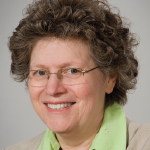 The Distinguished Clinical Investigator Award is awarded to a clinical scientist making outstanding contributions to the field of rheumatology. This award was known as the Clinical Research Award prior to 2006. The 2018 recipient is Dafna D. Gladman, MD, FRCPC (Fellow, Royal College of Physicians, Canada), a professor of medicine at the University of Toronto, co-director of the Lupus Clinic and deputy director of the Centre for Prognosis Studies in the Rheumatic Diseases at the University of Toronto in Ontario, Canada. She is the director of the Psoriatic Arthritis Program for the University Health Network and senior scientist at the Krembil Research Institute of the Toronto Western Hospital.
The Distinguished Clinical Investigator Award is awarded to a clinical scientist making outstanding contributions to the field of rheumatology. This award was known as the Clinical Research Award prior to 2006. The 2018 recipient is Dafna D. Gladman, MD, FRCPC (Fellow, Royal College of Physicians, Canada), a professor of medicine at the University of Toronto, co-director of the Lupus Clinic and deputy director of the Centre for Prognosis Studies in the Rheumatic Diseases at the University of Toronto in Ontario, Canada. She is the director of the Psoriatic Arthritis Program for the University Health Network and senior scientist at the Krembil Research Institute of the Toronto Western Hospital.
“This award means that my international colleagues appreciate my contribution to the field of rheumatology,” says Dr. Gladman. “My partner in our unit received this award last year, and another received the Scholar Award, which are very important recognitions.”
Born and raised in Tel Aviv, Israel, Dr. Gladman received her medical degree from the University of Toronto in 1971 and completed her internal medicine and rheumatology training programs at the university in 1977.
Since then, her medical career has taken off in multiple directions. She joined the University of Toronto faculty in 1977 and completed post-graduate training in 1979 in HLA typing at the Tissue Typing Laboratory, University of California, Los Angeles.
Dr. Gladman’s research interests include SLE and psoriatic arthritis, and she conducts clinical and translational research, with emphasis on database development, prognosis studies, genetic markers for disease susceptibility and expression, assessment instruments and quality-of-life measures. She studies genetic markers and soluble biomarkers in both diseases at Krembil.
Meanwhile, she has helped design and participated in clinical trials, edited three books, and authored two books, 741 peer-reviewed papers, 138 book chapters and more than 1,000 abstracts.
Dr. Gladman chaired the Systemic Lupus International Collaborating Clinics (SLICC) group responsible for the development of the SLEDAI, a disease activity index for lupus, and for the SLICC/ACR damage index. She was also president of the Group for Research and Assessment of Psoriasis and Psoriatic Arthritis and currently chairs its Publication Committee.
Since 2002, she has received many awards for her teaching, clinical and research efforts. She received the Distinguished Investigator Award from the Canadian Rheumatology Association; the Verna Wright Prize, second edition, for outstanding contribution to the field of psoriatic arthritis and to the birth of modern rheumatology; Mentor of the Year award from the Royal College of Physicians and Surgeons of Canada; Lifetime Excellence in Rheumatology Education “Kahuna” Award, Rheumatology Winter Clinical Symposium; the Lupus Foundation of America Hess Award in recognition of outstanding contributions to the field of lupus research, diagnosis and treatment; and the Carol Nachman Prize for outstanding research activities in the field of rheumatology.
“For over 40 years, seeing patients, doing research and teaching medical and PhD students and clinicals fellows has been my life,” says Dr. Gladman, who recently received a four-year grant to identify genetic biomarkers in psoriatic arthritis. “I want to make major discoveries.”
Distinguished Basic Investigator Award
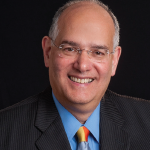 The recipient of the Distinguished Basic Investigator Award (given to a basic scientist making outstanding contributions to the field of rheumatology), Michael B. Brenner, MD, is the Theodore Bevier Bayles Professor of Medicine at Harvard Medical School in Boston; and the director of cell and molecular immunology in the Division of Rheumatology, Immunology and Allergy and the director of the Human Immunology Center at Brigham and Women’s Hospital, Boston.
The recipient of the Distinguished Basic Investigator Award (given to a basic scientist making outstanding contributions to the field of rheumatology), Michael B. Brenner, MD, is the Theodore Bevier Bayles Professor of Medicine at Harvard Medical School in Boston; and the director of cell and molecular immunology in the Division of Rheumatology, Immunology and Allergy and the director of the Human Immunology Center at Brigham and Women’s Hospital, Boston.
“The ACR has provided a central focus for our careers as rheumatologists and investigators,” says Dr. Brenner. “The Rheumatology Research Foundation has funded both training and research projects that have been responsible in major ways for progress in the specialty.”
Dr. Brenner and his team of trainees and colleagues at his lab and the Human Immunology Center design and implement high dimensional immunophenotyping, single cell transcriptomic analyses and functional studies to deconstruct human autoimmune disorders. While researching rheumatoid arthritis, his lab defined subsets of fibroblasts that mediate joint pathology, their activation mechanisms and the role of synovial cadherins in regulating their pathological behavior.
Recently, team members discovered a new T cell population—T peripheral helper T (Tph) cells that are pathologically expanded in rheumatoid arthritis and drive B cell responses and antibody production. They also identified new subpopulations of stromal fibroblasts implicated in synovial pathology in rheumatoid arthritis.
Dr. Brenner’s other research accomplishments include a series of discoveries in antigen presentation, T cell receptors and innate T cells. These include discovery of gamma delta T cells and studies of their roles in host defense and metabolism; discovery of the system of antigen presentation for lipids by which CD1 antigen-presenting molecules bind and present lipid antigens for recognition by T cells; roles of CD1-restricted T cells including iNKT cells in host defense and adipose tissue metabolism; role of the alphaE beta7 integrin (CD103) in mucosal leukocyte trafficking; role of the molecular chaperone IP90 (calnexin) in TCR and MHC protein complex assembly and quality control; and roles of small GTPase Arl proteins in endocytic trafficking and antigen presentation.
After graduating from Vanderbilt University School of Medicine in 1975, Dr. Brenner completed his residency there in 1979 and served as chief resident of medicine. Two years later, he finished his fellowship at the University of California, Los Angeles, Center for Health Sciences, and then completed a research postdoctoral fellowship in 1985 at Harvard Medical School, working with Jack Strominger, MD, Higgins Professor of Biochemistry, Department of Stem Cell and Regenerative Biology.
In 1991, Dr. Brenner became a full professor at Harvard Medical School. Four years later, he accepted a new role—chief, Division of Rheumatology, Immunology and Allergy—a position he held for 23 years.
Dr. Brenner co-chairs the NIH RA/SLE Accelerating Medicines Partnership Consortium Leadership Committee and Executive Committee, is a member of the National Academy of Sciences, and received the Lee C. Howley prize for Research in Arthritis and the Carol Nachman prize in rheumatology.
“Doing research to discover basic insights in the immune system in the lab and then thinking about how they might be applied to benefit medical treatments have captivated me for many years,” says Dr. Brenner. “The interactions with trainees and collaborators have made the experience possible and more rewarding than can be put into words.”
Paulding Phelps Award
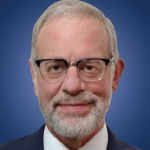 Outstanding service to patients, community and the practice of medicine is the hallmark trait of recipients of the Paulding Phelps Award. The 2018 recipient is Marc D. Cohen, MD, emeritus professor of medicine at the Mayo Clinic, Jacksonville, Fla., clinical professor of medicine in rheumatology for the Rocky Mountain Regional VA Medical Center in Aurora, Colo., and a clinical professor of medicine in rheumatology at the University of Colorado, Denver.
Outstanding service to patients, community and the practice of medicine is the hallmark trait of recipients of the Paulding Phelps Award. The 2018 recipient is Marc D. Cohen, MD, emeritus professor of medicine at the Mayo Clinic, Jacksonville, Fla., clinical professor of medicine in rheumatology for the Rocky Mountain Regional VA Medical Center in Aurora, Colo., and a clinical professor of medicine in rheumatology at the University of Colorado, Denver.
“Anytime you’re recognized or selected amongst a highly qualified sector of physicians and singled out for an award, it’s an honor, it’s humbling,” says Dr. Cohen. “I’m thankful, but thousands of people have helped me.”
Dr. Cohen has always perceived himself as a teacher. During the 1990s, when he worked at the Mayo Clinic, he was awarded Teacher of the Year for 11 consecutive years and was the first member of the Teacher of the Year Hall of Fame. Around 2000, he also received Mayo’s Distinguished Educator award.
After graduating medical school in 1977 from George Washington University Medical Center in Washington, D.C., Dr. Cohen completed his residency in internal medicine at Cedars Sinai Medical Center, Los Angeles, in 1980. Two years later, he finished a fellowship in rheumatology at the Mayo Clinic, Rochester, Minn.
For 20 years, he served as chair of rheumatology and associate chair of medicine at the Mayo Clinic in Jacksonville. In 2007, he accepted a new position as chair of rheumatology at Denver’s National Jewish Health Hospital.
Over the past decade, Dr. Cohen has served in numerous capacities. He volunteered as a mentor for five years for several rheumatology fellows in the Rheumatology Section of the Denver Veterans Affairs Medical Center and still works as a staff physician for hundreds of veterans in the Rocky Mountain region. He also joined the faculty as clinical professor of medicine in rheumatology at the University of Colorado, Denver, and holds the same title at the Rocky Mountain Regional VA Medical Center, Aurora, Colo.
As a fellow of the ACR and the American College of Physicians, Dr. Cohen has given numerous talks and presentations around the world, grand rounds review courses, and CME symposiums. In addition to writing numerous book chapters and being involved in more than 100 peer-reviewed publications, he was active on the ACR’s committee developing the ACR/EULAR Classification Criteria for Rheumatoid Arthritis (2009) and served as an associate editor for Arthritis & Rheumatology. He was a member of the American Board of Internal Medicine Subspecialty Committee in Rheumatology; participated in numerous clinical trials; is a graduate of the Stanford Faculty Development Program for Medical Teachers and is the associate medical director for the Center for Personalized Education for Physicians, Glendale, Colo.
“I’m going to stay in this limited role that I’ve carved out for myself,” Dr. Cohen says. “I’m not one of those people who can just absolutely stop. I’m pretty much where I want to be.”
Henry Kunkel Young Investigator Award
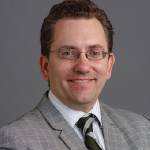 The Henry Kunkel Young Investigator Award is awarded to a physician scientist, age 45 or younger by Oct. 1 of the year in which they are nominated, who has made outstanding and promising independent contributions to basic or clinical research in the field of rheumatology. The 2018 recipient is Timothy B. Niewold, MD, the Judith and Stewart Colton Professor of Medicine and Pathology, and director of the Colton Center for Autoimmunity at the New York University School of Medicine.
The Henry Kunkel Young Investigator Award is awarded to a physician scientist, age 45 or younger by Oct. 1 of the year in which they are nominated, who has made outstanding and promising independent contributions to basic or clinical research in the field of rheumatology. The 2018 recipient is Timothy B. Niewold, MD, the Judith and Stewart Colton Professor of Medicine and Pathology, and director of the Colton Center for Autoimmunity at the New York University School of Medicine.
“The ACR has supported my career as a scientist,” says Dr. Niewold. “I’ve been able to give back by chairing the Scientific Advisory Council, which provides help for people who are pursuing a research career in rheumatology. These grants have actually helped people in my lab pursue training and research.”
Dr. Niewold supports research goals that personalize treatments based on a patient’s immunology and discovering new targets for therapies by studying human genetics. His work established type I interferon as a heritable risk factor for lupus and identified genes that underlie this heritable trait.
“We’ve been interested in studying human genetics with the idea that if you find some of the risk factors, you might get to the root of the tree and know how to intervene more efficiently,” he says.
Dr. Niewold earned his medical degree in 2001 at the University of Illinois, Chicago, and completed his residency in internal medicine at the Mayo Clinic, Rochester, Minn. After training in rheumatology at the Hospital for Special Surgery, he worked in the laboratory of Dr. Crow, the ACR’s 2018 Presidential Gold Medal Winner, on the role of type I interferon in lupus. Then he accepted a faculty position at the University of Chicago in 2007 and later moved to the Mayo Clinic in 2012 as an associate professor. This past year, he transitioned to his current role at the New York University School of Medicine.
Although focusing extensively on lupus, Dr. Niewold’s projects also involve rheumatoid arthritis and inflammatory myopathy. He mentors junior faculty in his laboratory, including a rheumatologist physician-scientist who is supported by a K series award.
Over the years, Dr. Niewold has held multiple leadership roles. Currently, he serves on the ACR’s Committee on Research, is president of the Central Society for Clinical and Translational Research, is a standing member of the NIH ACTS study section and serves on the U.S. Department of Defense’s Lupus Research Program and its Programmatic Review Panel for the Peer Reviewed Medical Research Program.
“You have to follow the science where it takes you and don’t always know where it’s going,” says Dr. Niewold. “I like exploring the unknown. You can end up in unexpected places.”
Excellence in Investigative Mentoring Award
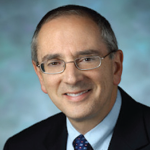 A dedicated mentor can significantly influence the successful development and career of a mentee. The Excellence in Investigative Mentoring Award recognizes the importance of the mentor/mentee relationship. This year’s recipient is Antony Rosen, MBChB, vice dean for research, director of the Division of Rheumatology, Mary Betty Stevens Professor of Medicine, professor of cell biology and professor of pathology at Johns Hopkins University School of Medicine, Baltimore.
A dedicated mentor can significantly influence the successful development and career of a mentee. The Excellence in Investigative Mentoring Award recognizes the importance of the mentor/mentee relationship. This year’s recipient is Antony Rosen, MBChB, vice dean for research, director of the Division of Rheumatology, Mary Betty Stevens Professor of Medicine, professor of cell biology and professor of pathology at Johns Hopkins University School of Medicine, Baltimore.
“For a long time, I have measured my own career success by the success of the people I interacted with and mentored,” says Dr. Rosen. “So this award is more about my mentees than about me.”
Dr. Rosen is among the pioneers of precision medicine and individualized health, which he says “reimagines patient care.”
Dr. Rosen received his medical degree in 1984 from the University of Cape Town, South Africa. After completing his internship in medicine and surgery, he completed his postdoctoral studies in immunology in 1990 at the Rockefeller University, N.Y. That same year, he returned to clinical medicine as an Osler resident and completed his rheumatology fellowship at Johns Hopkins Hospital in 1994. The following year, he joined the faculty at Johns Hopkins and rose to the rank of professor in 2002. As director, he has managed the rheumatology division’s expansion from 14 to 34 faculty.
Dr. Rosen and his research partner, Livia Casciola-Rosen, PhD, professor of medicine at the university, have focused on autoimmunity in the rheumatic diseases, using subgroups of patients with distinct phenotypes, trajectories and specific autoimmune responses to define molecular mechanisms. This work has targeted scleroderma, myositis, Sjögren’s syndrome, RA and lupus.
More than a decade ago, Dr. Rosen recognized the vulnerability of junior investigators because a limited amount of funds would be available for discovery. So he successfully defined pathways to support junior faculty career growth, focusing particularly on the fellow-faculty transition and the K award process. His efforts included raising dedicated resources for junior faculty discovery projects, formalizing venues for science review and granting access to a stable framework enabling clinical research.
Over the years, Dr. Rosen has been active with the ACR by chairing the Committee on Journal Publications and serving on its Board of Directors. He now chairs the NIAMS Board of Scientific Counselors and has received several research awards, including the ACR’s Henry Kunkel Young Investigator award, Pew Scholar in the Biomedical Sciences and Burroughs-Wellcome Award in Translational Sciences. He was also elected to the ASCI and the AAP and received the MERIT award from the National Institutes of Health. Other awards focused on his mentoring efforts at Johns Hopkins. He received the David Levine Excellence in Mentoring award from the Department of Medicine, the House staff teaching award and the Basic Science mentor award from the School of Medicine.
“I’ve reached the stage of my career where I’m watching young people succeed at high levels,” says Dr. Rosen. “That’s tremendously gratifying.”
Distinguished Fellowship Program Director Award
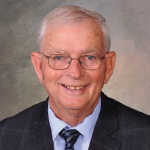 The Distinguished Fellowship Program Director Award is given to a current or former rheumatology program director who has made outstanding contributions in the mentoring and training of future rheumatologists. In 2018, two outstanding program directors are the award recipients: Thomas M. Harrington, MD, and Calvin R. Brown Jr., MD.
The Distinguished Fellowship Program Director Award is given to a current or former rheumatology program director who has made outstanding contributions in the mentoring and training of future rheumatologists. In 2018, two outstanding program directors are the award recipients: Thomas M. Harrington, MD, and Calvin R. Brown Jr., MD.
Dr. Harrington is the assistant director of the Department of Rheumatology, Geisinger Medical Center, Danville, Pa., and a professor of medicine in the Department of Clinical Sciences at Geisinger Commonwealth School of Medicine, Scranton, Pa.
“Fellowships and teaching are the things I love doing most,” says Dr. Harrington. “The ACR’s Program Directors Conference makes them easy for me to do. You’re not out there in a vacuum.”
Over the years, Dr. Harrington has received many accolades for his brand of teaching. Residents at Geisinger Medical Center recently named him among the top 10 teachers in internal medicine. This year, he was a finalist for the ACGME Parker J. Palmer (Courage to Teach) award. From 2010 to 2013, he was recognized as one of the Best Doctors in America. Back in 1988, he also received the Golden Apple Award for best teacher.
“Some residents think the only time they’re being taught is when they’re sitting in the classroom watching a slide presentation,” he says. “Our residents see us on a daily basis, sometimes on the fly. We bring them into the exam room so they can see the patient they read or heard about during lecture. These are fluid teaching moments.”
Dr. Harrington earned his medical degree from Temple University School of Medicine, Philadelphia, in 1976. (The school is now called Lewis Katz School of Medicine–Temple University.) As part of his residency program in internal medicine at the Geisinger Medical Center, he completed a rotation in rheumatology, became attracted to the field and was intrigued by how rheumatology touched all subspecialties.
From 1978 to 1979, he served as Geisinger’s chief medical resident in internal medicine. Two years later, he completed a rheumatology fellowship at the same center and, in 1982, finished an additional year of rheumatology fellowship at the Mayo Clinic, Rochester, Minn.
As a member of the graduate medical education committee at Geisinger from 2003 through 2012, Dr. Harrington helped usher in changes that enhanced the quality of residency and fellowship programs, the work environment, accreditation of the internal medicine programs and professional development of the residents and fellows.
So far, he has authored 56 publications and conducted several presentations at ACR national meetings. From 2015 to 2017, he also received a Top Patient Experience award from Press Ganey.
“Medicine has taught me that if you truly listen to what patients and colleagues say, even the most complex patient problems can be solved,” says Dr. Harrington. “We try to emphasize that to our trainees and residents through fluid teaching, which is a friendly way to learn.”
 Dr. Brown is a professor of medicine in the Division of Rheumatology at The Feinberg School of Medicine, Northwestern University in Chicago.
Dr. Brown is a professor of medicine in the Division of Rheumatology at The Feinberg School of Medicine, Northwestern University in Chicago.
“I devoted my entire career to training rheumatologists,” says Dr. Brown. “To be recognized for this now, at the final stage of my career, caps off my career in the most gratifying way I could possibly imagine. I want this award to be prominently featured in my bio and ultimately, in my obituary.”
Dr. Brown has served as a training program director for 32 years. His training focuses on three different, yet overlapping fields: rheumatic diseases, sports medicine and disability evaluation. While rheumatological diseases often involve the musculoskeletal system, he explains that sports medicine frequently involves injuries or overuse of the musculoskeletal system and that the most common cause of disability in the U.S. is some impairment of the musculoskeletal system.
He became interested in rheumatology because his sister suffered from juvenile rheumatoid arthritis. When he was 18 years old, his next door neighbor, a rheumatologist, asked if he wanted a job in his lab.
Dr. Brown grew up in Detroit. “My father required the boys in his family to work in the auto plants in the summer, which was miserable,” says Dr. Brown. “So when my neighbor leaned over the fence and asked if I was interested in working in his lab, I jumped at the opportunity.”
In 1979, he received his medical degree from Wayne State University, Detroit, and completed his internship and residency in 1982 at Northwestern Memorial Hospital, Chicago. Over the next seven years, he completed a fellowship in rheumatology at the University of Michigan, Ann Arbor, and another fellowship in orthopedics at Rush University Medical Center, Chicago.
Dr. Brown is past president of the Chicago Rheumatism Society. His research has been published in Arthritis & Rheumatology, The Journal of Rheumatology and Arthritis Care & Research. He has authored several textbook chapters dealing with arthritis and allied conditions.
On his first day as a rheumatology fellowship program director, he says he had free rein in how to train fellows, so he followed his instincts. He quickly learned the importance of humility, active listening to fellows and patients, and that there’s no such thing as a bad or dumb question.
He perceives the ACR as his “tribe,” explaining that a tribe consists of communities linked by social, economic, religious or blood ties, and has a recognized leadership structure, common culture and dialect. He says it’s both professional and social.
“It’s wonderful to be part of this tribe,” says Dr. Brown. “I’m also most proud of growing the tribe of rheumatologists.”



